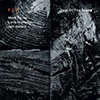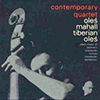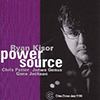Today the jazz musician and blogger Camden Hughes has a post ("Why Vibing is Bad for Jazz") arguing that "vibing"–the longstanding practice favored by jazz musicians of giving another musician the stinkeye or worse if he or she isn't making it in one way or another–is never good.
I disagree.
First: I do agree that generally, yes, it's not good to be a nasty person, and there is definitely a kind of defensive vibing that is unrelated to anyone's performance and springs from a musician's own insecurities. This kind of vibing is bad. Being respectful and having a sense of humility about your place in the musical continuum is always a good goal regardless of the situation.
But the fact is that some judiciously applied instructional vibing can fulfill the very important purpose of teaching people that this music is challenging and demanding and deserves a level of competence. To elaborate:
Often young players, hobbyists, or even professional musicians from other genres will come into a jazz sit-in or gig situation thinking they are fairly hot stuff due to previous adoring crowds in schools or karaoke bars or their success in non-jazz settings. It is in the best interest of both these musicians and the music in general to disabuse them of this notion (if in fact they are making rookie mistakes) as soon as possible. Why? So they can either a) realize they really need to improve, and do the work necessary to get there, or b) realize they don't have the interest or time to improve and would be better off spending their energy elsewhere.
Because you know what's more bad for jazz than vibing? Bad jazz. I've said this before, but the music is ill-served by putting out a poor example to represent the product–when people hear a bad rock band they think, "this band is lousy," whereas when they hear a bad jazz band they think, "I don't like jazz."
So by reinforcing the seriousness required of this music to these players, the overall quality of the product improves and fewer fans are turned off by lousy performances. It can be unpleasant, I get it! I was definitely one of those youngsters with a too-high opinion of myself and have been on the receiving end of vibing many times, much of it well-deserved. But it also served two purposes that made me a better musician: it inspired me to get my ass in gear and get to work; and it helped me get used to the idea that this is just a thing that happens in life and not to lose sleep over it. (This is especially true of the defensive vibing I mentioned earlier–you're going to run into that. Better to learn to get over it and on with your own work.) It's also been my experience that a musician coming from the humble/respectful place I mentioned before who screws up will get a kinder variety of vibe than one coming from a place of arrogance.
Now, to preemptively address some objections: "What about when they smashed Ornette Coleman's horn? Was that good for the music?" Of course not, violence is bad and no, they shouldn't have smashed his horn. But imagine how Ornette must've sounded to those early bands he sat in with–what he was doing was in another world stylistically, so of course it wouldn't have fit, so it makes sense in the context of the music of that time that he would be treated like someone who couldn't play. So how did he respond? He found a group of players who could appreciate his vision and started a revolution.
And obviously vibing is not appropriate in all circumstances. In an educational setting, for example, the teacher could accomplish the same goal by just telling the student what he/she needs to work on. But in an age when jazz clubs fill up half their calendar with middle and high school bands, it is worth emphasizing that we as representatives of the hundred-plus year tradition of this music have (in my opinion anyway) a duty to put forth serious, well-executed music (in whatever style we happen to be playing at the moment). Half-assing it should be inexusable for the pro as well as the student.
One more thought: to the idea of "we're all in this together," I would say, yes we are, but that doesn't mean we get to phone it in. It's nice to say "Anyone can play jazz" but it needs the caveat "if you work your ass off at it."
In other words: it's nothing personal, man! You just need to practice! And then come back and try it again.
Don't miss Vibing, Part II: Vibable Offenses!


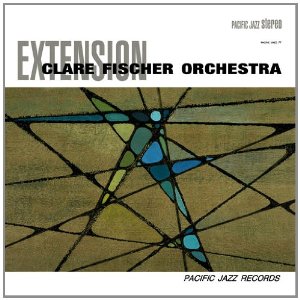 Clare Fischer Orchestra: Extension (1963) Ever run into one of those records where you know almost immediately it's going to be one of your all-time favorites? This one, which I picked up at a record store in San Rafael (along with some other finds including albums by Martial Solal & Don Cherry) was one of those records. Fischer, a burning pianist, has been featured in "New to Me"
Clare Fischer Orchestra: Extension (1963) Ever run into one of those records where you know almost immediately it's going to be one of your all-time favorites? This one, which I picked up at a record store in San Rafael (along with some other finds including albums by Martial Solal & Don Cherry) was one of those records. Fischer, a burning pianist, has been featured in "New to Me" 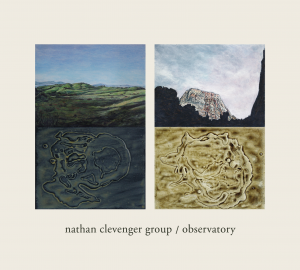 Nathan Clevenger: Observatory (2013) Nathan & I run in a lot of the same circles (this album features my longtime collabo-friends Kasey Knudsen, Jon Arkin & Evan Francis, for example) and the frequency at which he can find opportunities to perform music like this with a band this size is nothing short of amazing. (With any luck we may have a double-bill in the future.) A great balance of inspiring blowing & thorny writing, tunes with surprising arcs (see "Sleepwalker's Anecdote"), and more bass clarinet than you can shake a stick at. I don't think it's too presumptuous to say I think Charles Mingus would like this record. Buy
Nathan Clevenger: Observatory (2013) Nathan & I run in a lot of the same circles (this album features my longtime collabo-friends Kasey Knudsen, Jon Arkin & Evan Francis, for example) and the frequency at which he can find opportunities to perform music like this with a band this size is nothing short of amazing. (With any luck we may have a double-bill in the future.) A great balance of inspiring blowing & thorny writing, tunes with surprising arcs (see "Sleepwalker's Anecdote"), and more bass clarinet than you can shake a stick at. I don't think it's too presumptuous to say I think Charles Mingus would like this record. Buy 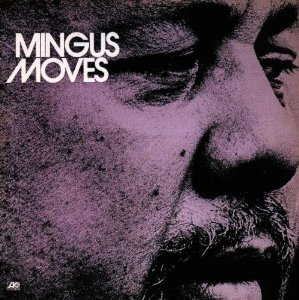 Charles Mingus: Mingus Moves (1973) This is one I somehow never got around to hearing until recently. Not everything here is my cup of tea (the singers and trumpet player, for example) but "Canon" is classic, and Sy Johnson's chart on "Wee" makes the trip worthwhile. Plus prime George Adams & Don Pullen, and of course the great Dannie Richmond & the man himself. Buy
Charles Mingus: Mingus Moves (1973) This is one I somehow never got around to hearing until recently. Not everything here is my cup of tea (the singers and trumpet player, for example) but "Canon" is classic, and Sy Johnson's chart on "Wee" makes the trip worthwhile. Plus prime George Adams & Don Pullen, and of course the great Dannie Richmond & the man himself. Buy 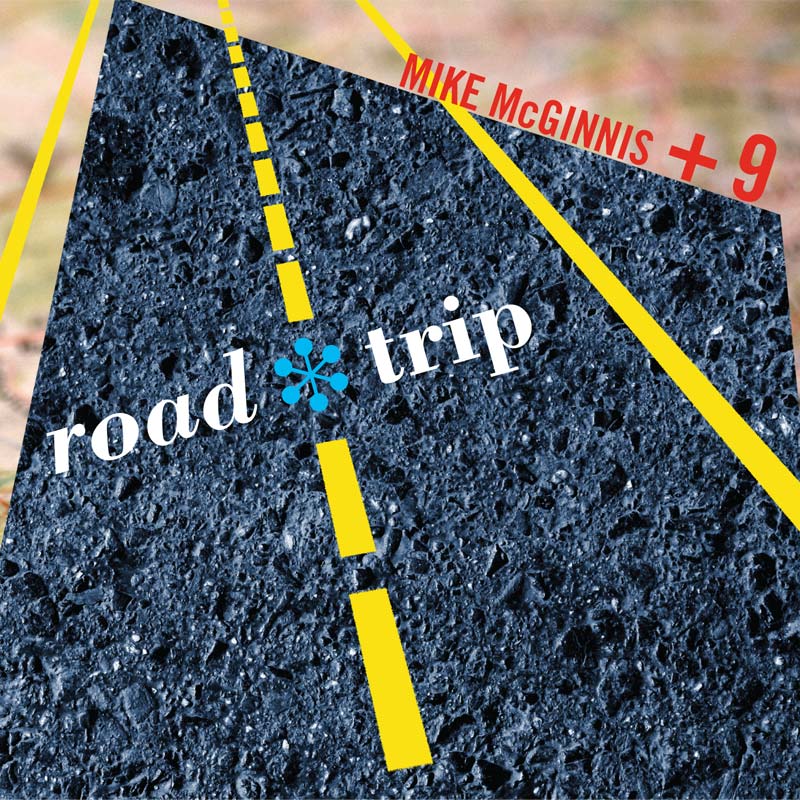 Michael McGinnis+9: Road*Trip (2013) I played with Mike a few times when I lived in NYC and we had a lot of friends in common. This album features a great new recording of Bill Smith's Third-Stream masterpiece Concerto for Clarinet & Jazz Combo--which is worth the price of admission by itself--but definitely stick around for McGinnis's extremely interesting title suite, which brings the Third Stream vibe into the present. The first movement is a personal favorite. Buy
Michael McGinnis+9: Road*Trip (2013) I played with Mike a few times when I lived in NYC and we had a lot of friends in common. This album features a great new recording of Bill Smith's Third-Stream masterpiece Concerto for Clarinet & Jazz Combo--which is worth the price of admission by itself--but definitely stick around for McGinnis's extremely interesting title suite, which brings the Third Stream vibe into the present. The first movement is a personal favorite. Buy 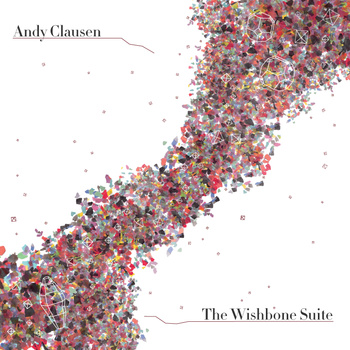 Andy Clausen: The Wishbone Suite (2012) Man, has this guy got compositional chops to burn. In addition to having no problem "
Andy Clausen: The Wishbone Suite (2012) Man, has this guy got compositional chops to burn. In addition to having no problem "

 Some of you may know that in addition to playing the trumpet, writing music, doing
Some of you may know that in addition to playing the trumpet, writing music, doing 